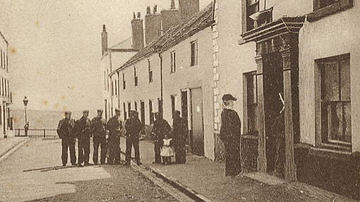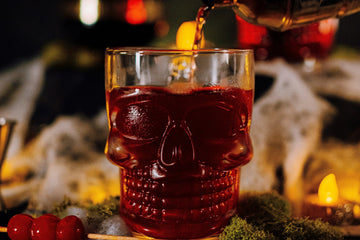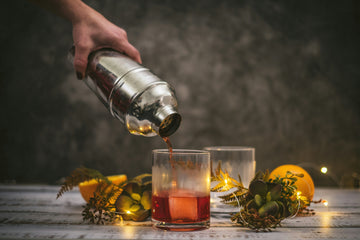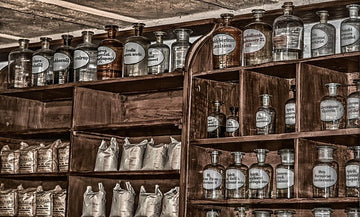
Under the cover of night a boat sails close to the shore. Unmarked boxes are unloaded and carried through the breaking waves, across the beach and away into the darkened countryside. For generations smuggling was rife on the Yorkshire Coast. Perhaps it still is?
The narrow alleys and yards around Queen Street, the heart of Filey’s fishing community, were almost ready made for spiriting away contraband goods away from the prying eyes of the authorities. Rumours of a hidden tunnel from Coble Landing to Queen Street persist to this day. It is also rumoured that there was a hollow beam in the roof of the long lost pub, T’Owld Ship, which hid bottles and tobacco.
Gin, or more appropriately, Jenever (Dutch Gin) was smuggled in such quantities that it was joked that householders on the coast used it to wash their windows. A huge consignment of Jenever was found beneath Speeton cliffs in the 1820s. Abandoned after excise officers interrupted the smugglers.
The smuggling was possible as there was a large trade between Yorkshire and Holland, with fish and coal going to Holland, with the returning vessels bringing legal Jenever and also distinctive pantiles for roofing that are still a feature of the Yorkshire Coast. Our distillery building has the S-shaped clay-fired pantiles on its roof and it was a feature that we were determined to save when we resorted the building over the winter of 2021.
Beneath Dutch Pantiles, Filey Gin is legally distilled with a stone’s throw of the smugglers’ paradise that was the warren of backyards of Queen Street. Today, beneath the nose of the excise man, you may ‘smuggle’ as much gin as you can humanly carry. Whether you decide to wash your windows with it is your choice, but we would recommend drinking it!




